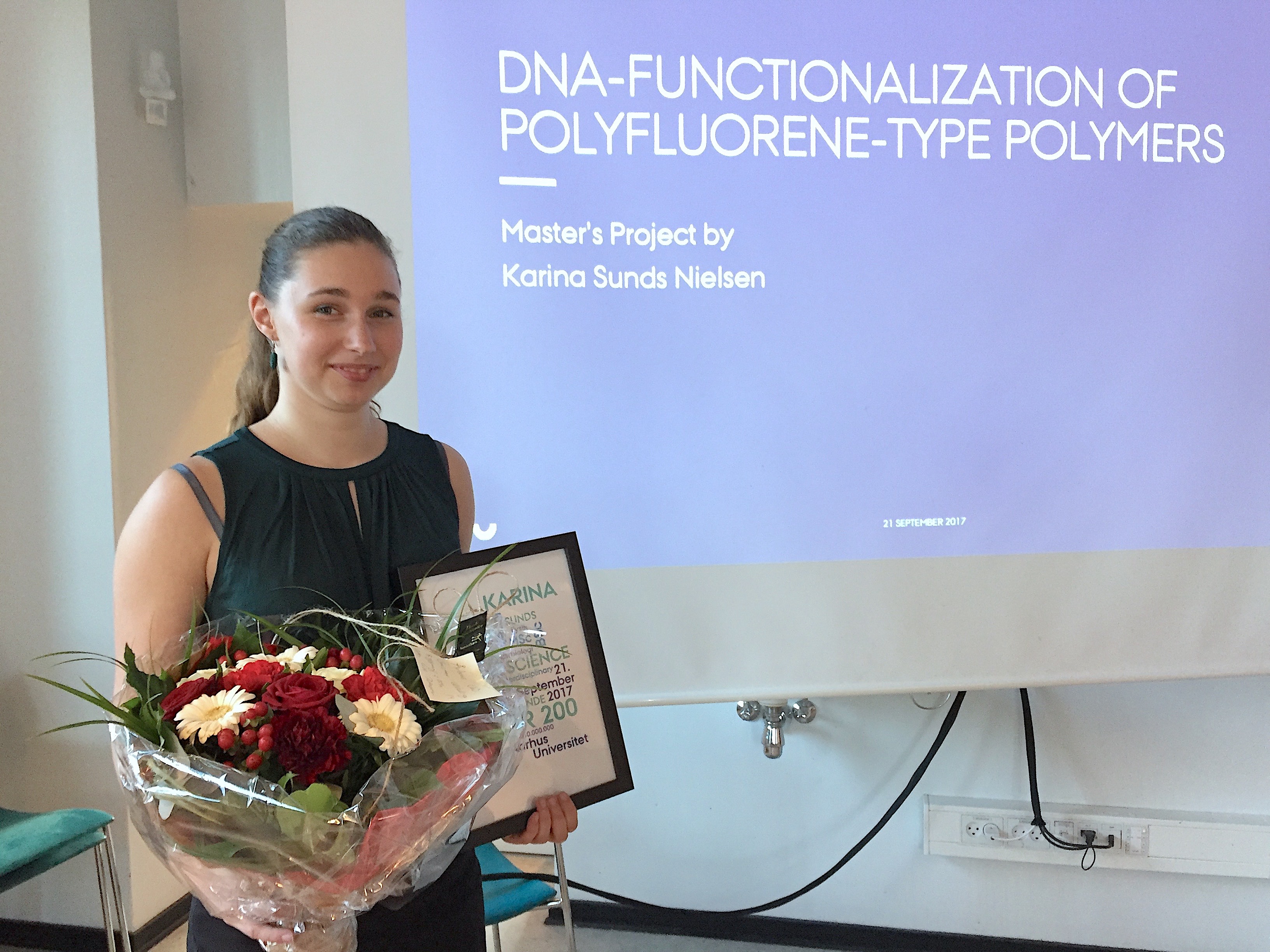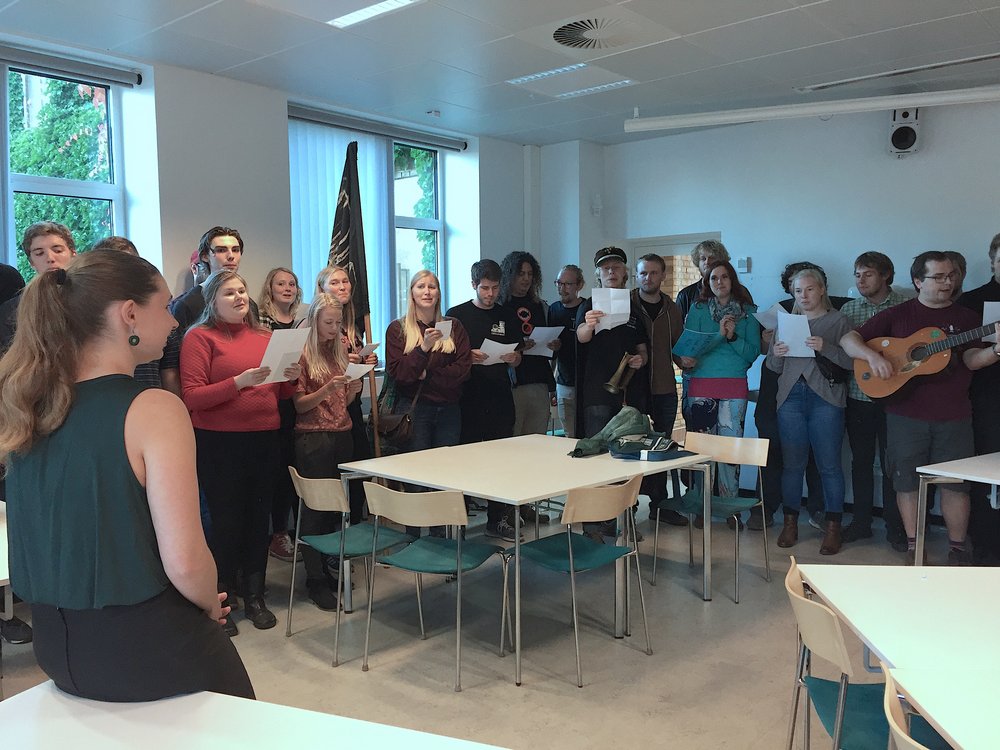MSc in Nanoscience no. 200 from iNANO, Aarhus University
Not only is this year the 15th anniversary of the Nanoscience educational programme, Interdisciplinary Nanoscience Centre (iNANO) could also celebrate MSc in Nanoscience no. 200.

On Thu 21 September 2017 Nanoscience student, Karina Sunds Nielsen, defended her Master’s thesis. Not only did she get the grade 12 (A), but iNANO also surprised her with a diploma and flowers. Karina is not just any Nanoscience student – she is Nanoscience student no. 200 who has completed the Nanoscience Bachelor’s and Master’s educational programme since the very beginning in 2002.
iNANO was very proud to congratulate her with her top grade as well as her unique status in the line of students graduating from Nanoscience at iNANO.
Karina was also celebrated by family, friends, fellow students as well as by the student association Tågekammeret.
Karina’s Master’s project:
During Karina’s master thesis work in prof. Kurt Gothelf's group, she has experimented with DNA nanotechnology in combination with polymers. She has conjugated polymers with DNA in order to tune their functionality and application as well as allowing her to study individual polymer molecules.
The examiner, prof. Jan O. Jeppesen (University of Southern Denmark) praised her work and stressed that obviously Karina is a talented synthesis chemist with skills in a broad range of fields. He described her Master’s thesis as absolutely outstanding.
Nanoscience educational programme in general:
Besides accommodating a unique instrument park and delivering world class research, iNANO offers the nanoscience educational programme, which is an interdisciplinary education, where Karina as well as her fellow students have followed courses in physics, chemistry and molecular biology. The education allowed them to investigate and develop unique materials, features and properties in almost everything we surround ourselves with.
The nanoscience students have worked on the nanoscale, where a nanometer equals one billionth of a meter. It is about 100,000 times less than the diameter of a human hair. They are therefore working with the very smallest details in the development of future technologies in areas such as materials, energy, environment, communication, electronics and health.
Having a bachelor's degree in Nanoscience paves the way for continuing studies on several master's programmes. For example, the master's programme in Nanoscience, which can provide the students with job opportunities within a wide range of scientific areas, ranging from nanomedicine and biotechnology to functional materials and the energy/environmental sector.
Since iNANO was inaugurated in 2002, the center has matured to a leading international nanoscience center with strong track records within education (BSc, MSc, and PhD level), research, technology transfer, collaboration with industry, innovation in the form of SME spin-outs.
The Nanoscience students become part of this active, internationally oriented research environment. Students get access to the advanced equipment in the course of the exercises, and in the final projects they reach the absolute research frontline. In addition, the international research community creates good opportunities for international stays in the following master's program.
Read more about the nanoscience programme on http://bachelor.au.dk/nanoscience/ and http://kandidat.au.dk/nanoscience/.

MSc in Nanoscience no. 200 surprised by Tågekammeret (Photo: Lise Refstrup Linnebjerg Pedersen)
